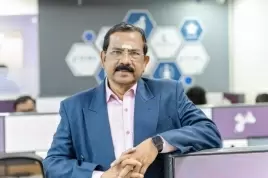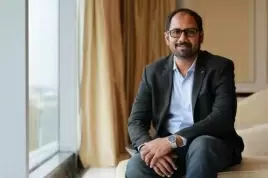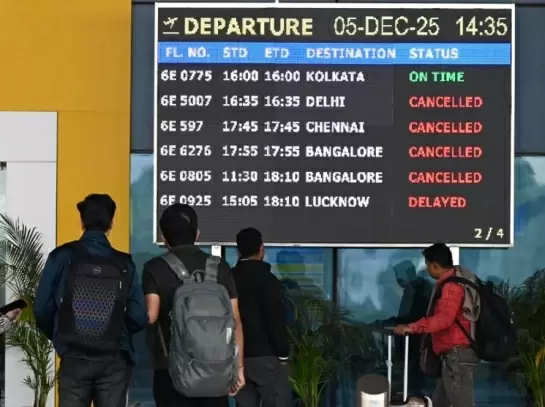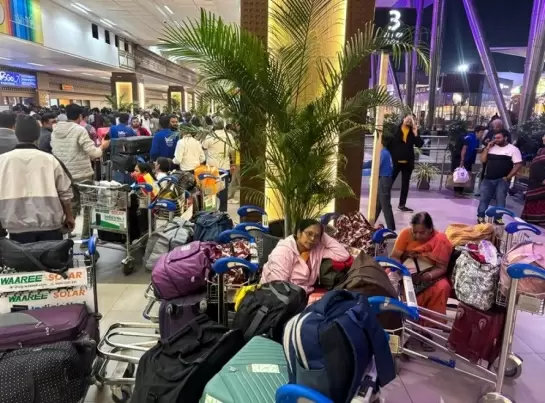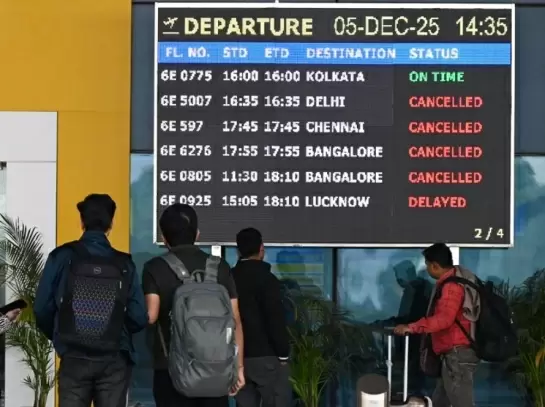He Traded a Life in Silicon Valley for Villages and Built a Rs 8,700 Crore Tech Powerhouse
08-September-2025
Vol 16 | Issue 37
Sridhar Vembu is unlike most tech billionaires. He didn’t build his company in Silicon Valley or follow the usual path of taking venture capital. Instead, he built Zoho Corporation, a global software company with a turnover of Rs 8,700 crore from scratch, setting up offices in Indian villages.
Zoho Corporation offers over 45 cloud-based business applications, with more than 80 million users, and 15,000+ employees worldwide.
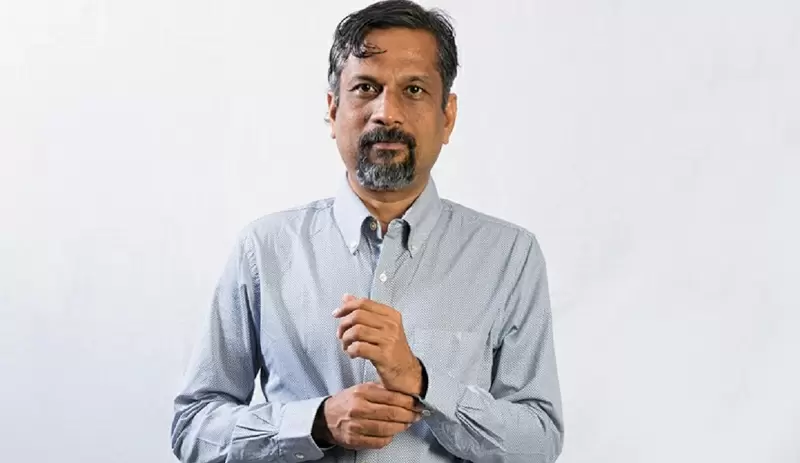
| Sridhar Vembu, the mind behind Zoho, who turned a bootstrapped startup into a Rs 8,700 crore global tech company (Photos: IANS) |
Vembu was born in 1968 into a middle-class family in Tamil Nadu’s Thanjavur district. His father, who passed away last year, is believed to have worked as a stenographer and his mother was a homemaker.
He wrote on X paying tributes to his father: “My father Shri Sambamurthy Vembu passed away today. He was 81 and was ailing for some time. He had strong will power, fought till the very end but the body didn't cooperate. He was the role model for all of us siblings and his grandchildren, leading a very simple life. That example will always be with us.”
Growing up in rural India, he experienced the challenges of limited resources but also the strength of traditional values.
He completed his engineering degree at IIT Madras and later pursued higher education in the United States, earning a PhD in Electrical Engineering from Princeton University.
Sridhar Vembu started his career at Qualcomm in the U.S. as a wireless engineer. Though he could have built a safe career there, he wanted to return to India and create something of his own.
In 1996, he co-founded AdventNet, the company that later became Zoho, along with his brothers and friend Tony Thomas. From day one, they refused venture capital and chose to grow the company with their own money.
AdventNet began with network management software and in 2009 rebranded itself as Zoho Corporation. Over time, it expanded into business software like CRM, email, accounting, HR, and project management. Unlike many startups that sought quick funding or an IPO, Zoho stayed private, allowing it to focus on long-term vision instead of short-term profit.
What truly sets Vembu apart is his deep focus on decentralisation. While most tech entrepreneurs build companies in big cities, he chose to take a different path. In 2011, he set up an office in Tenkasi, a small town in Tamil Nadu. It started with just six employees. Today, that office has grown to over 500 people.
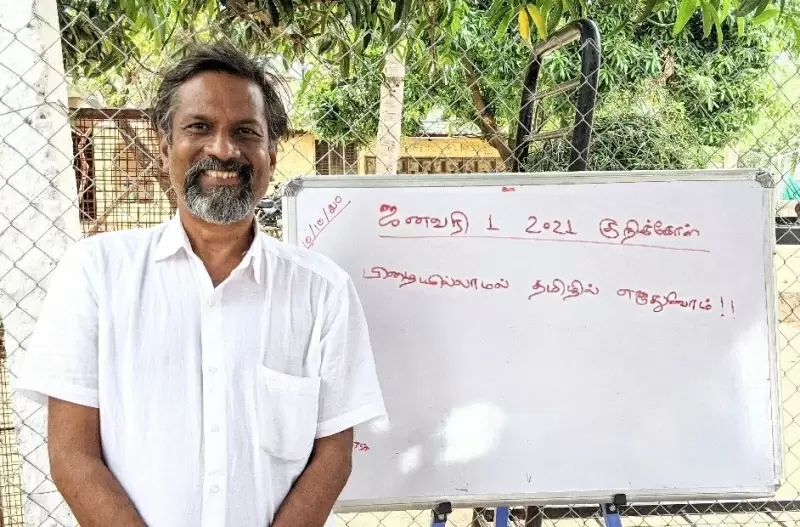
| Living in a Tamil Nadu village, Vembu shows that world-class businesses can grow from India’s small towns |
He believes that rural areas in India have a large talent pool that often goes unnoticed. He points out that within a 30-km circle around any small town, there may be up to two million people. If even 1,000 students graduate each year, there is no shortage of talent, it just needs nurturing.
Vembu calls his approach "transnational localism"—the idea of building global products while staying rooted in local communities. According to him, not every job needs to be done in urban centres.
With the right training, young people from rural areas can do world-class work. His rural offices help raise local incomes, improve infrastructure, and reduce migration to cities.
The model has been so successful that Zoho now plans to expand it to 100 rural districts across India. Another example is Zoho’s office in Renigunta, Andhra Pradesh, which follows the same village-based model. His goal is to show that one doesn’t need to move to Bengaluru or Pune to work in tech.
In 2004-05, Zoho launched Zoho University, now called Zoho Schools of Learning. It offers an alternative to formal college education by selecting high school students and training them for 18–24 months in programming, mathematics, and communication. Students are paid a stipend during training and are offered jobs at Zoho afterward.
Zoho Schools have changed many lives, with about 15% of the company’s employees coming from this programme. Most of them are from families that could never afford college, but with Zoho’s training they gained skills and jobs. Instead of spending money on degrees, they receive hands-on education and meaningful jobs.
Vembu is not someone who just talks about village development from an air-conditioned office. He lives in Mathalamparai, a village near Tenkasi, where he leads a simple life, riding his cycle, joining community events, and guiding local youth.
Zoho’s village offices do not have fancy buildings or glass towers. They are simple but functional. The focus is on quality of work and quality of life. Employees get to stay close to their families, breathe cleaner air, and live at a lower cost. This also reduces the pressure and stress that comes with living in metro cities.
In one interview, Vembu said that in Bengaluru, when a job is posted, people may not apply because of relocation. But in rural India, hundreds line up if you advertise locally. He sees this as a great opportunity not only for business but also for rural upliftment.
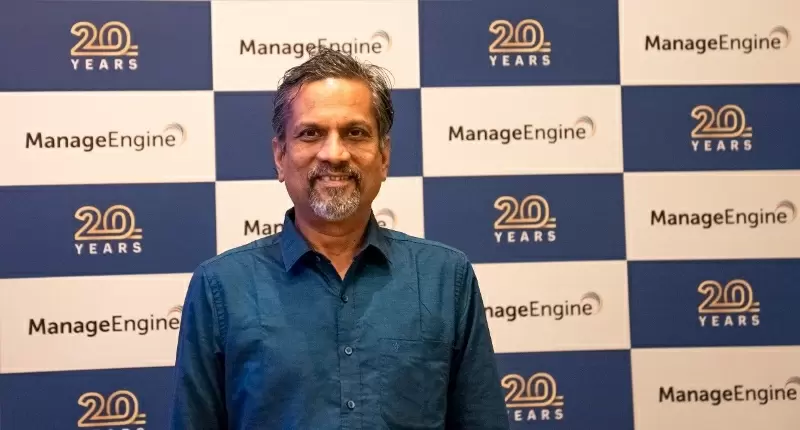
| Vembu's Zoho Schools of Learning empowers rural youth with skills and jobs, redefining education beyond degrees |
Vembu often speaks about his inspiration from Gandhi’s ideas of village self-reliance and decentralisation. He believes that real innovation comes from long-term thinking, and one can’t do that if the goal is quick money. That’s why Zoho has never gone public. It’s not just a business decision—it’s a reflection of his belief that companies should serve society, not just shareholders.
In fact, Vembu has criticised the excessive concentration of economic power in cities. He once tweeted that cities like Bengaluru “bloom while villages bleed,” and he has repeatedly called for a balance between urban and rural development.
Vembu’s life and work offer a powerful message: you don’t need to follow the crowd to succeed.
Sridhar Vembu’s life is proof that big dreams do not need outside money or big-city offices. With vision and values, and by staying close to one’s roots, it is possible to build something world-class.
From his simple background in Tamil Nadu, he has gone on to become a leading figure in Indian business. Zoho stands today as a symbol of his philosophy - successful, independent, and a model that could guide the future of rural development in India. - TWL Desk



